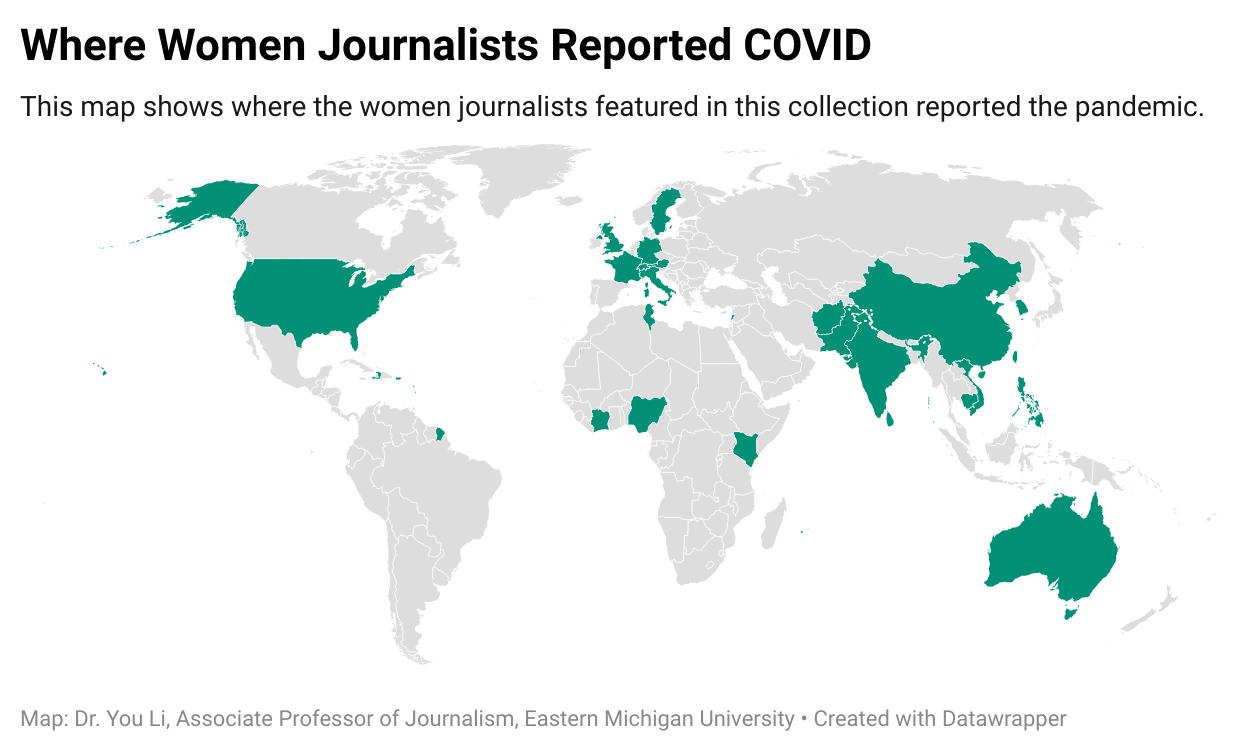A new oral history archive at Eastern Michigan University (EMU) contains 33 interviews with female journalists from around the world who covered the COVID-19 pandemic at its peak. From May to September last year, EMU Associate Professor of Journalism Dr. Du Li conducted and collected over 30 hours of interviews for the archive entitled “Collective memory of female journalists during COVID-19.” The collection details how the unique challenges faced by the interviewees ultimately led to significant contributions to the field of journalism.
“Although we have all experienced COVID, political, economic and cultural factors have compounded the complexity and differences between communities in responding to COVID,” Li says. “One reason I wanted to create this archive was to raise public awareness of how journalistic storytelling comes together and what it takes to produce news in the midst of a global health crisis.”
While many of those interviewed for the collection mentioned pandemic-specific challenges such as quarantine and the inability to communicate with sources in person, Li explains that several reporters also faced regional and cultural challenges. She tells stories of journalists in Europe who were “only allowed outside for an hour a day to walk their dogs or go to the pharmacy” at the height of the pandemic, as well as others from South Asia and India who battled misinformation spread by their local governments. The pandemic also forced many journalists to work from home. Some interviewees recalled feeling burned out or worrying about how they would feed their families.
“Many of the issues raised by these journalists existed before COVID, but COVID has magnified the problems and hit them all at once,” Li says. “Their sense of responsibility with minimal support or compensation is simply remarkable.”
Many of the women interviewed also spoke about gender challenges and battling sexist cultural notions that women should stay home and raise children or go out into their communities not just to report but to support others through volunteer work. But Li says changes in the field of journalism, such as the ability to work remotely, as well as the fact that many young journalists are turning more to solutions-focused journalism, are signs that the profession may be changing for the better.
“It’s very unfortunate that women journalists still face gender challenges in the 21st century,” Li says. “There are so many structural inequalities that women journalists still face in this profession, and I hope the profession can recognize that and hopefully bridge the gap.”
The complete interview collection can be found online Here or in person at the EMU University Archives in the Halle Library. For further information and inquiries please contact Li at [email protected].
“By publishing these conversations in the most original way possible, I want to preserve the memories of these journalists and give the public direct access to understand and reflect on their own experiences during COVID,” says Li. “I feel like I owe it to these journalists who have been so generous in sharing their experiences. I want to do them justice.”
Rylee Barnsdale is a Michigan native and longtime Washtenaw County resident who plans to use her journalism experience from her time at Eastern Michigan University to write for the Eastern Echo and tell the stories of Washtenaw County residents that need to be heard.
Infographic courtesy of You Li.
Did you like this story? Sign up to receive free solutions-based reports in your inbox every week.





